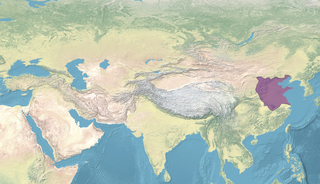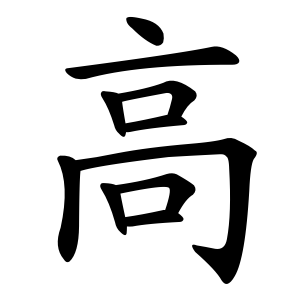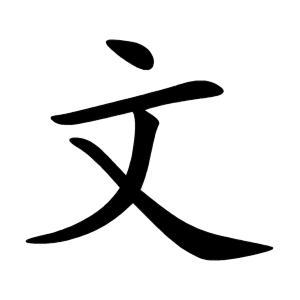
Qi, known in historiography as the Southern Qi or Xiao Qi, was a Chinese imperial dynasty and the second of the four Southern dynasties during the Northern and Southern dynasties era. It followed the Liu Song dynasty and was succeeded by the Liang dynasty. The main polity to its north were the Northern Wei.
Gao Qi, courtesy name Jidi (季迪), pseudonym Qingqiuzi (青丘子), was a Chinese poet who lived in the early Ming dynasty. He is generally acknowledged as one of the greatest creators of Ming poetry. Gao Qi was born and raised in the shore of Wusong River, north of Puli Town near Suzhou. His life was much influenced by events arising in connection with the fall of the Yuan dynasty and the rise and establishment of the succeeding Ming dynasty.
Taizu is a temple name typically, but not always, used for Chinese monarchs who founded a particular dynasty. It may refer to:

Qi, known as the Northern Qi, Later Qi (後齊) or Gao Qi (高齊) in historiography, was a Chinese imperial dynasty and one of the Northern dynasties during the Northern and Southern dynasties era. It ruled the eastern part of northern China from 550 to 577. The dynasty was founded by Gao Yang, and was eventually conquered by the Xianbei-led Northern Zhou dynasty in 577.
Guang Qi(pinyin) or Kuang Chi(Wade–Giles) may refer to:
The Grand Chancellor, also translated as counselor-in-chief, chancellor, chief councillor, chief minister, imperial chancellor, lieutenant chancellor and prime minister, was the highest-ranking executive official in the imperial Chinese government. The term was known by many different names throughout Chinese history, and the exact extent of the powers associated with the position fluctuated greatly, even during a particular dynasty. During the Six Dynasties period, the term denoted a number of power-holders serving as chief administrators, including zhongshun jian, zhongshu ling, shizhong, shangshu ling and puye.
Wang Jian or Jian Wang may refer to:

Wei (魏) is the English spelling of a Chinese surname.

Gao is an East Asian surname of Chinese origin that can be literally translated as "high" or "tall". There are approximately 17 million living people with this surname. Some places, such as Taiwan, usually romanise this family name into "Kao". In Hong Kong, it is romanized to "Ko". In Macau, it is romanized to "Kou". In English, it is romanized to "Kauh". In 2019 it was the 19th most common surname in Mainland China. The Korean surname, "Ko" or "Koh", is derived from and written with the same Chinese character (高).
Empress Hu (胡皇后) may refer to:

Wen is the pinyin romanisation of the Chinese surname 文 (Wén).

Ming Dynasty in 1566 is a Chinese television series based on the events in the reign of the Jiajing Emperor of the Ming dynasty. It was first broadcast on Hunan TV in China in 2007.

Ming poetry refers to the poetry of or typical of the Ming dynasty (1368–1644). With over one million specimens of Ming poetry surviving today, the poetry of the Ming dynasty represents one of the major periods of Classical Chinese poetry, as well as an area of active modern academic research. Ming poetry is marked by 2 transitional phases, the transition between the Yuan dynasty which was the predecessor to the Ming, and the Qing-Ming transition which eventually resulted in the succeeding Qing dynasty. Although in politico-dynastic terms, the dynastic leadership of China is historically relatively clear-cut, the poetic periods involved encompass the lifespans and works of poets whose lives and poetic output transcend both the end of one dynasty and the initiatory period of the next.

Tián, or T'ien in Wade-Giles is a Chinese surname. An alternative transliteration of "田" from Cantonese is Tin, from Hokkien is Thinn. It appeared in the Hundred Family Surnames text from the early Song Dynasty. It also means "field". In 2019 it was the 34th most common surname in Mainland China.

Lú is the pinyin romanization of the Chinese surname written 卢 in simplified character and 盧 in traditional character. It is also spelled Lo or Loh according to the Cantonese pronunciation. Lu 卢 is the 52nd most common surname in China, shared by 5.6 million people, or 0.475% of the Chinese population as of 2002. It is especially common in Guangdong, Guangxi, Hainan, and Hebei provinces. Lu 卢 is listed 167th in the Song dynasty classic text Hundred Family Surnames.

Waist chop or waist cutting, also known as cutting in two at the waist, was a form of execution used in ancient China. As its name implies, it involved the condemned being sliced in two at the waist by an executioner.
Tian Qi or Tianqi may refer to:
This page is based on this
Wikipedia article Text is available under the
CC BY-SA 4.0 license; additional terms may apply.
Images, videos and audio are available under their respective licenses.









